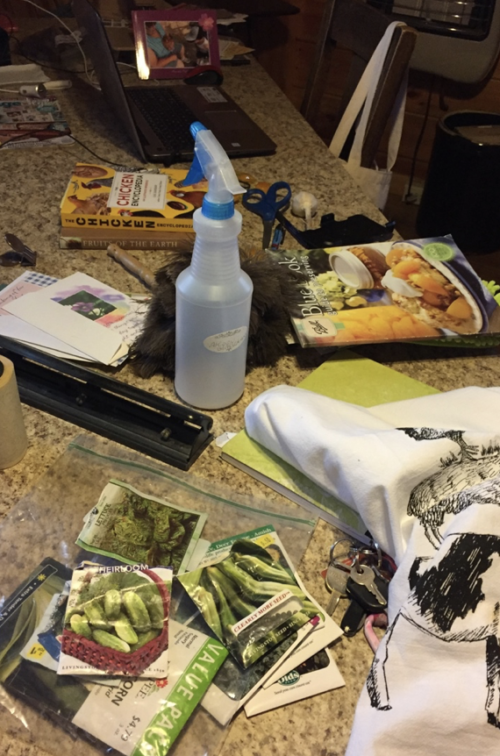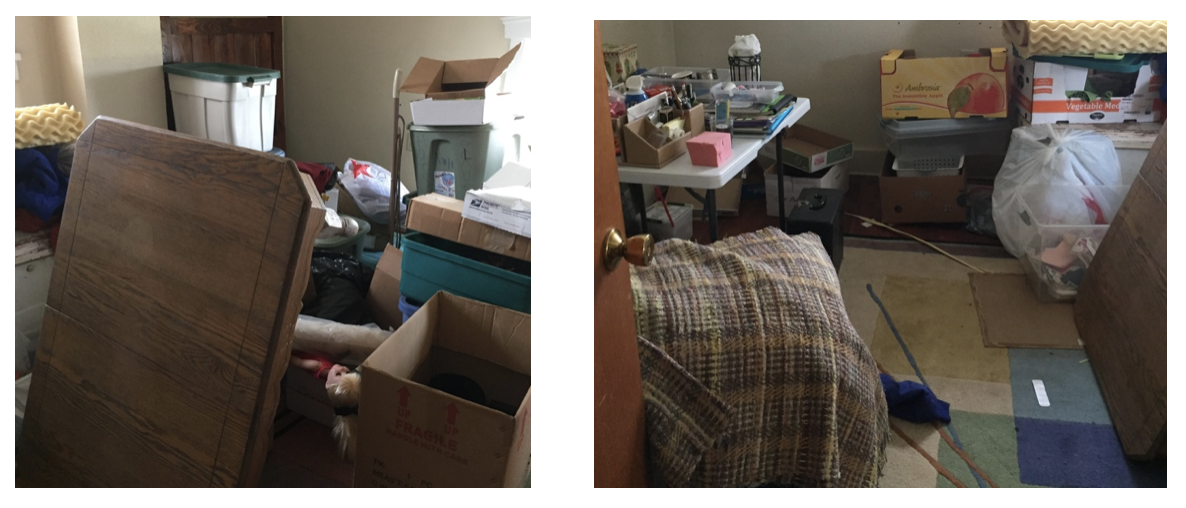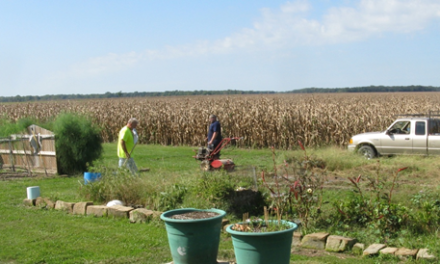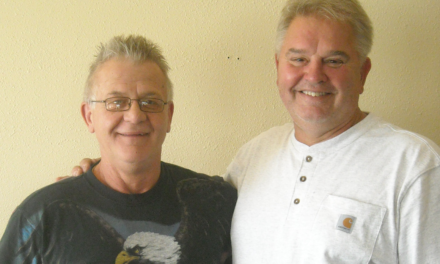
Then I came to the homestead. Life got much more physically busy while I didn’t stop any of my outside activities. I was still going on mission trips and served with Jim as mission coordinators for our church. I was leading bible study groups, running a small commercial cleaning company, taking care of the book-work and bids for Jim’s construction company while taking on the setting up of a new house and re-learning how to raise meat birds and grow truck gardens and deal with predators. I was busy! The whole concept of the simple life was what I was after, but it got crowded out by the sheer volume of work I took up. I couldn’t just have chickens, I needed 187 chickens and turkeys and ducks and rabbits. You get the idea. I wanted the whole shebang.
Suddenly I no longer had time to paste wax the beautifully refinished hardwood floors since I was covered over with mucking out the coops and watering a massive garden. I wore a hands-free headlight so I could continue to work outside after dark. Jim was busy with his company but he never complained about coming home to a messy house. I found myself exhausted.
Clutter started piling up. The very type of dysfunctional housekeeping that I was always so quick to judge in others had hit my homestead.
For the first year at the homestead, if my house was even a little dirty and the neighbors dropped by, I wouldn’t let them in. We stood outside and froze. Finally I swallowed my pride and let them in one cold day. To most people, the house was fairly clean and orderly, a little dusty but dishes washed and chairs open for sitting. My dear neighbors always called it “lived in” and we sat down to a great visit. Of course I usually had whole wheat coffee cake or bread that went well with a hot cup of coffee. I am learning that people don’t want a house that is perfect; they want to sit at my table and enjoy a visit. Practicing hospitality is one of the greatest joys of the simple life.
But to enjoy this less stressed self-sufficient way of living, it’s imperative to learn how much you can and cannot handle comfortably.
In her book, Throw Out Fifty Things, Gail Blanke outlines the “Rules of Disengagement” to help people clear out the clutter in their lives. The core concept is “if it weighs you down, clogs you up, or just plain makes you feel bad about yourself, throw it out, give it away, sell it, let it go and move on.” Is my house now Suzy Homemaker perfect? No, but can guest come in and enjoy a visit without having to wonder if it’s safe to use the bathroom? Yes! But in the spirit of full disclosure, here is a photo of my work table.
Looks like a mess, but I am busy writing and when I am done for the month, it will be cleared off.


How to start the decluttering process? Little by little, that’s the key for me. Don’t try to take on the entire house unless you can afford to hire help and tackle it intensely. You don’t even have to take on a whole room, just start with one closet. Get three boxes: one to keep, one to toss and one to give to charity. This system works. When you are doing a room, start at one corner and make your way around the room back to the door. Be brutal about what you really need to keep.
The small basket is trash, the middle basket is keep and the red tub is charity. This way you can also just devote 15 minutes a day to a room. Showing some progress will encourage you to press on.
Clean as you go. Washing base-boards may be tedious but knowing that you are improving the air quality in your home will help make the chores go faster. Buchheit has a complete line of low-cost cleaning products as well as storage containers for all your treasures. They also have all the items needed to make your own cleaning products like the DIY window cleaner on my table. I look forward to meeting some of you at your local Buchheit store for the Fall Homestead Living Seminars. Start somewhere but enjoy the journey! Be blessed! Anne May






